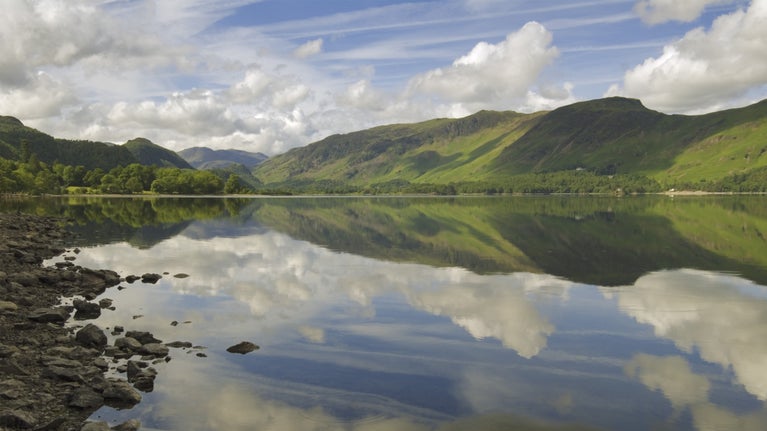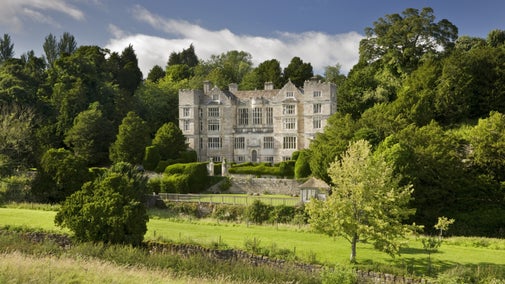
Finding places of calm amidst a ‘culture war’

- Published:
- 11 November 2020

After a year of uncertainty, it’s more important than ever for everyone to have access to green spaces, historical stories and beautiful places to find a sense of calm. These are the things we look after, for everyone to reach some normality. Many cultural institutions have become the subject of fierce debate, moving discussions away from what the nation needs most right now: recovery. Here, Hilary McGrady, our Director-General, focuses on the importance of nature, beauty and history, and how these familiar aspects of life can help us through difficult times.
Our institutions reflect what is going on in national life. Spring 2020 was an extraordinary moment in time for the National Trust. We had to close for the first time in our 125-year history.
When the nation was desperately in need of access to green space, fresh air and nature, I was hugely relieved in May when we were allowed to reopen. And we have reopened to millions of visitors.
Even with restrictions in place, everyone’s determined to get outdoors and connect with their surroundings. Despite the complications that come with keeping places open safely, visitors have been profoundly kind, co-operative, and patient.
But far away from the green spaces and open skies, our national debate threatens to move away from what we really need to be focusing on. At a time when we most need understanding and tolerance to get us through a terrible crisis, some of our oldest institutions and independent charities have become a battle ground in so-called ‘culture wars’.

Surrounding organisations that millions of people care about – and some of our most fierce critics are those who care a great deal – there will always be debate about how progress is to be made. And we welcome debate – that’s part of being a membership organisation. But the polarisation of views and quality of debate today surrounding charities and independent organisations right now feels different.
The National Trust looks after so much that’s great about England, Wales and Northern Ireland – art, architecture, history, landscapes, nature and wildlife. It’s one of Britain’s greatest success stories. No other country in the world has a National Trust of the scale and variety of ours. Other countries have come to depend on the state to cherry-pick and protect their heritage. The Trust, as an independent charity, cares for a wide range of sites of national pride – from where Magna Carta was sealed to the White Cliffs of Dover.
While we stay out of politics, organisations like the National Trust can also be instrumental in supporting national policies. By 2025, we aim to restore or create 25,000 hectares of habitat for nature, directly contributing to the goals for nature set out in the Government’s 25 Year Environment Plan. When it comes to creative exports, places in our care have been host to some of the biggest blockbusters filmed in the UK, from Star Wars at Ashridge to Game of Thrones in places like Castle Ward, Northern Ireland.

In recent months, I’ve received hundreds of letters and emails expressing all kinds of views about the many decisions we make every day – from passionate support, to vicious threats. It’s the same picture on social media.
But the vast majority of over 5 million National Trust members have been engaged elsewhere. When I’m out and about among our members and visitors at places we care for, they’re not arguing about the National Trust. They’re there to gaze around them and enjoy the wonders of nature and manmade beauty. They’re giving their time, attention and volunteer hours to the conservation of our shared heritage.
Upsetting anyone is of course a matter of regret for me. Our founders wrote that we exist for the benefit of the nation. I take that seriously and I would never want anyone to feel at odds with an institution that is there to serve them. Cultural organisations should be places where people can find common ground. Places where debate can be had with shared understanding. Spaces to speak and to listen.
The nation needs to recover. We’ll need beautiful, green spaces and cultural institutions to make this happen. Scientific genius has its importance, but we will also need art and culture, parks and wilderness. We’ll need to wonder again at the world around us. Above all, we’ll need compassion, calm and kindness.

You might also be interested in
About the National Trust today
Discover more about our legacy, people and values as a conservation charity. We protect historic places and green spaces while opening them up for everyone, for ever.

Our vision for places and experiences
Director-General Hilary McGrady sheds light on our work as a conservation charity through the pandemic and beyond for built heritage and historical collections.
